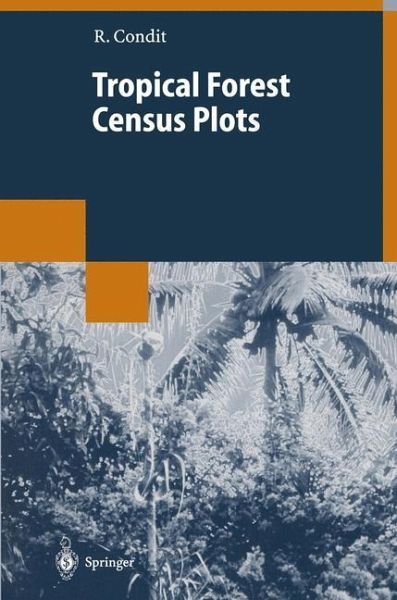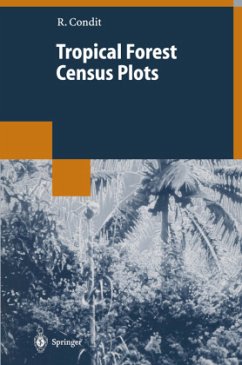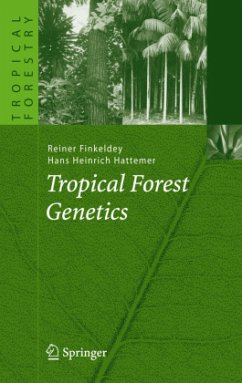
Tropical Forest Census Plots
Methods and Results from Barro Colorado Island, Panama and a Comparison with Other Plots
Versandkostenfrei!
Versandfertig in 1-2 Wochen
115,99 €
inkl. MwSt.
Weitere Ausgaben:

PAYBACK Punkte
58 °P sammeln!
By way of a summary of all the data collected by the mapping teams, I will review what is entered on each of the data sheets. The map sheet was already de scribed in some detail (Fig. 2.2.1A), and includes a circle or a point for the location of each tree and the tree's tag number (the last three or four digits) written next to it. The range of tag numbers used in the quadrat should be written at the top of the sheet. The main data sheet is where most other information about each individual is recorded (Fig. 2.2.1B). As for all sheets, the quadrat number, the first date a quadrat is censused, ...
By way of a summary of all the data collected by the mapping teams, I will review what is entered on each of the data sheets. The map sheet was already de scribed in some detail (Fig. 2.2.1A), and includes a circle or a point for the location of each tree and the tree's tag number (the last three or four digits) written next to it. The range of tag numbers used in the quadrat should be written at the top of the sheet. The main data sheet is where most other information about each individual is recorded (Fig. 2.2.1B). As for all sheets, the quadrat number, the first date a quadrat is censused, and the mappers' names are recorded at the top. For each plant, there are blanks for the following information: subquadrat number, tag number, species name, dbh, codes, and problems. Subquadrat number and tag number are straight forward. Size in millimeters is entered in the dbh column, except for multiple stemmed plants or big trees, which get a blank dbh on the main data sheet. Species identification will be handled by separate taxonomy teams (chapter 2.3), but map pers should enter a species name if they know it.














